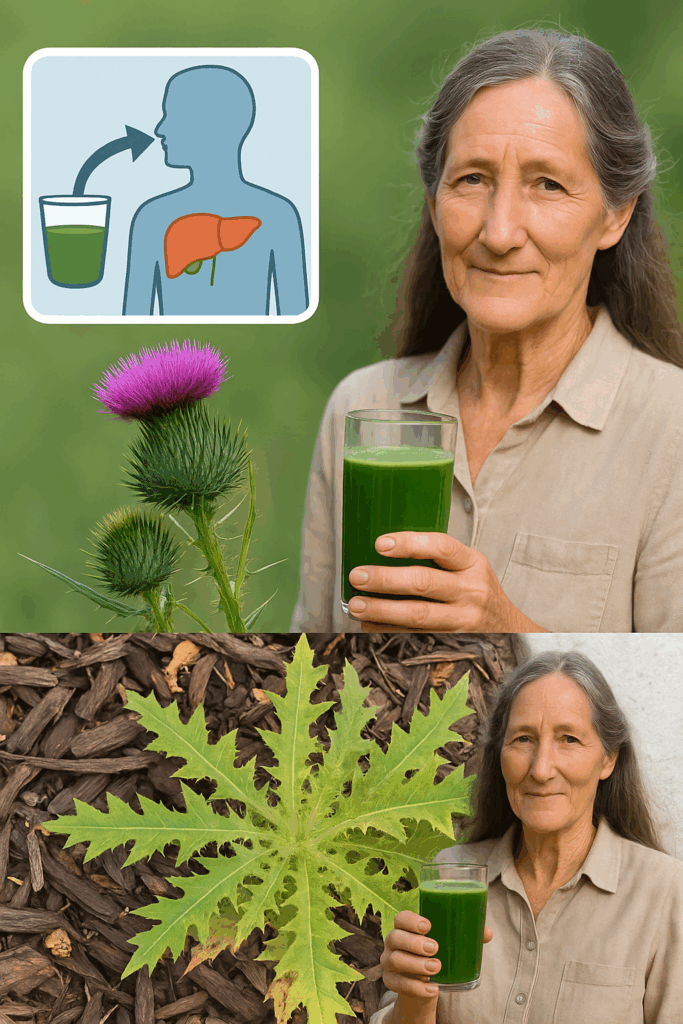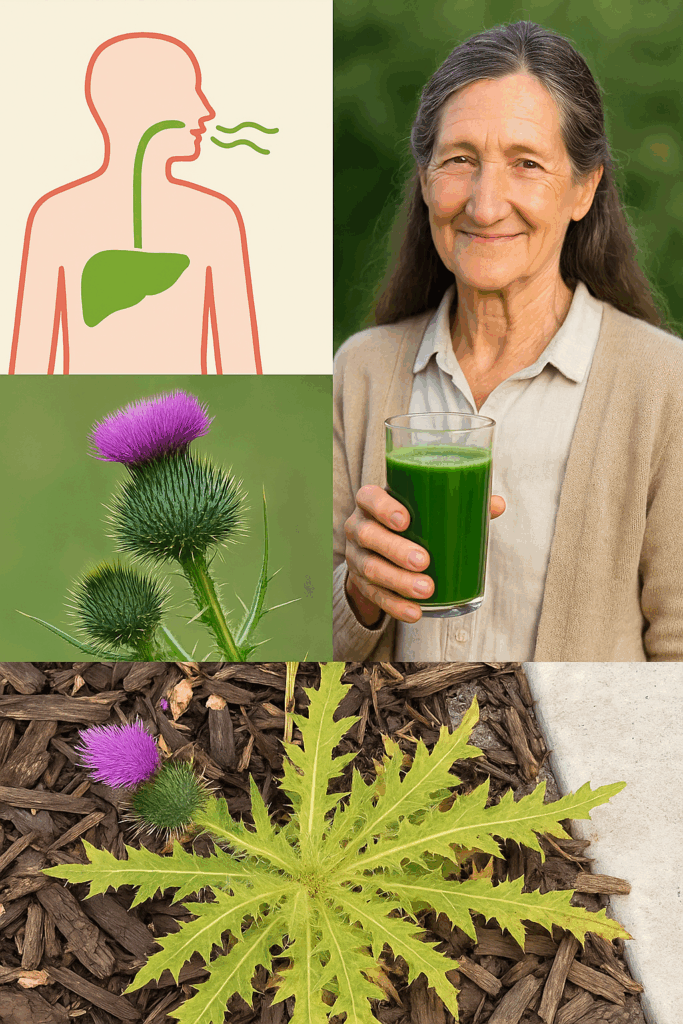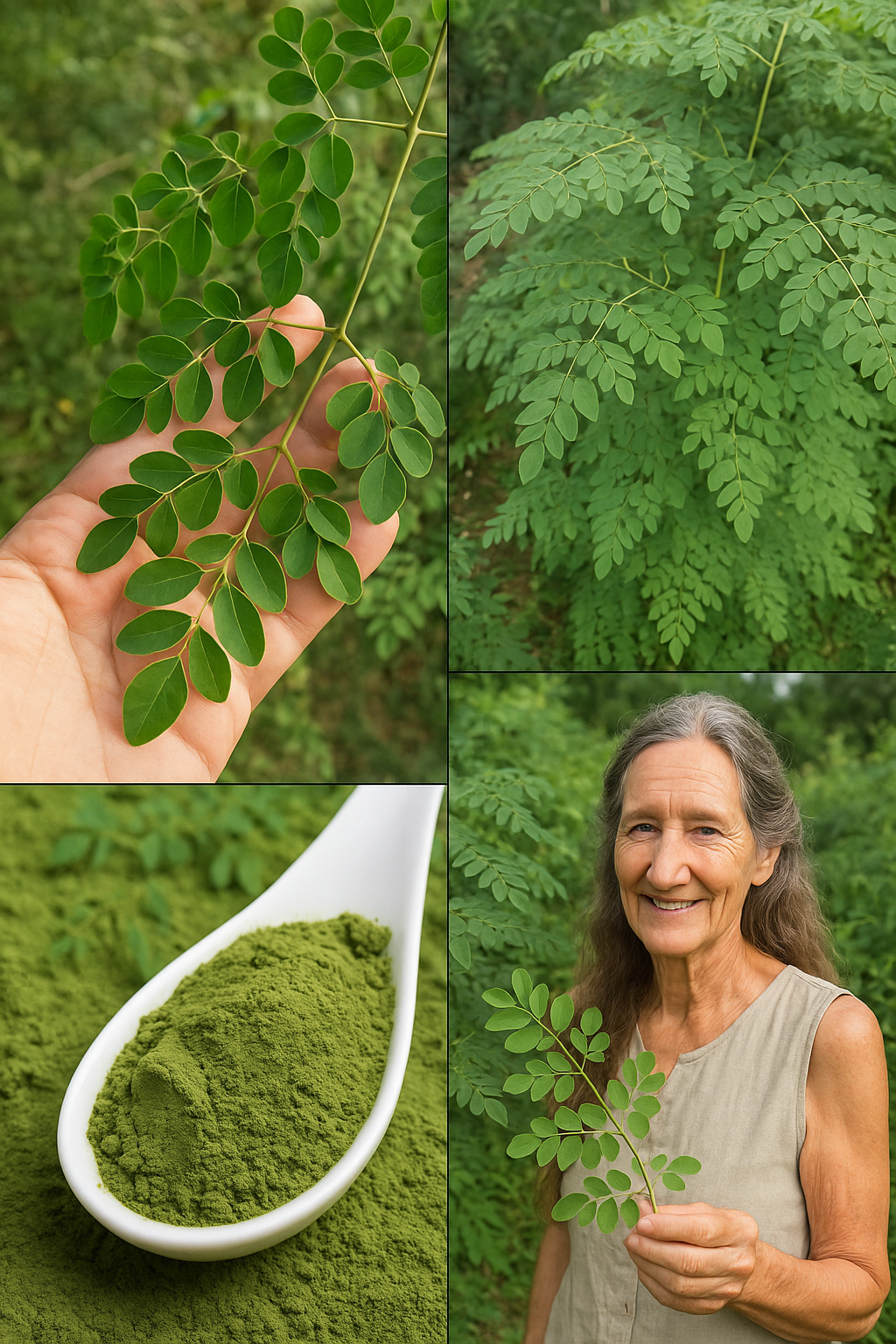Often mistaken for a prickly nuisance in pastures and gardens, Bull Thistle (Cirsium vulgare) is actually a deeply beneficial wild plant with a long history of medicinal use. Hidden beneath its spiny surface are powerful properties that can aid digestion, support the liver, reduce inflammation, and even promote skin healing.
Let’s explore why Bull Thistle deserves a place in your natural wellness toolkit—and how you can harness its benefits safely at home.

🌱 10 Health Benefits of Bull Thistle
1. Enhances Digestion
Its bitter roots stimulate digestive enzymes and bile flow, improving nutrient absorption and appetite.
💡 Use: Brew a tea from dried or fresh root and drink 15–30 minutes before meals.
2. Natural Liver Cleanser
Bull Thistle works similarly to milk thistle, supporting detoxification and liver function by aiding toxin elimination.
💡 Use: Steep leaves and stems for a mild detox tea.
3. Reduces Inflammation
Loaded with flavonoids and antioxidants, this thistle can reduce swelling, joint pain, and skin inflammation.
💡 Use: Apply a poultice of crushed leaves to sore muscles or joints.
4. Boosts Immune Defense
Rich in vitamin C and iron, it naturally strengthens the immune system.
💡 Use: Drink a warm tea regularly during cold and flu season.
5. Powerful Antioxidant Support
Its leaves and flowers contain antioxidants that fight cell-damaging free radicals, supporting healthy aging and cellular repair.
💡 Use: Add tinctures or teas to your daily routine.
6. Promotes Wound Healing
With antibacterial and soothing properties, Bull Thistle helps disinfect minor cuts and speed up healing.
💡 Use: Use a cooled leaf infusion or apply crushed leaves to wounds.
7. Natural Diuretic
Encourages urine production, helping to reduce bloating and remove toxins via the kidneys.
💡 Use: Sip Bull Thistle tea in the morning to support detoxification.
8. Improves Circulation
Its bitter compounds help stimulate blood flow, potentially reducing the risk of clotting and supporting heart health.
💡 Use: Try a root tincture daily as a circulatory tonic.
9. Calms Skin Irritation
Its cooling infusion can relieve itchy, inflamed skin and help with conditions like eczema or dermatitis.
💡 Use: Use as a toner or pour into bathwater for full-body relief.
10. Supports Respiratory Health
Traditionally used to ease mild coughs and bronchial irritation, thanks to its anti-inflammatory effects.
💡 Use: Sip warm tea to soothe your chest and throat.

🍵 How to Use Bull Thistle at Home
1. Bull Thistle Tea
- Ingredients: 1–2 tsp dried leaves + 1 cup hot water
- Instructions: Steep for 10–15 minutes, strain, and sip.
- Benefits: Digestive support, immune boost, anti-inflammatory.
2. Digestive Root Tincture
- Ingredients: Chopped fresh roots + high-proof alcohol
- Instructions: Steep in a sealed jar for 4–6 weeks, shake daily.
- Dosage: 10–20 drops in water before meals to stimulate digestion.
3. Poultice for Pain or Swelling
- Crush fresh leaves and apply directly to inflamed areas.
- Wrap with a bandage and leave on for up to 1 hour.
- Use for: Muscle soreness, joint stiffness, or insect bites.
4. Wound Wash
- Steep leaves in hot water, cool, then use to rinse cuts or abrasions.
- Antibacterial and soothing—great for minor injuries.
🧤 Safety Tips & Precautions
- Always wear gloves when handling—those spines are sharp!
- Allergy Alert: If you’re allergic to ragweed or other plants in the Asteraceae family, use with caution.
- Consult your doctor if pregnant, nursing, or taking medications.
- Avoid overuse: Too much can cause stomach upset in sensitive individuals.
🌿 Final Thoughts: Don’t Underestimate the Thistle
Bull Thistle may look rough and untamed, but beneath its thorns lies a potent plant with the power to support your digestion, skin, immune system, liver, and more. With proper preparation and respect, this wild weed becomes a valuable ally in your natural health routine.
So next time you spot this purple-crowned plant in the wild, remember: what many see as a weed, herbalists recognize as a wild remedy worth keeping. 💚
Disclaimer: This content is for educational purposes only and not intended as medical advice. Always consult a qualified healthcare provider before beginning any new herbal treatment.


